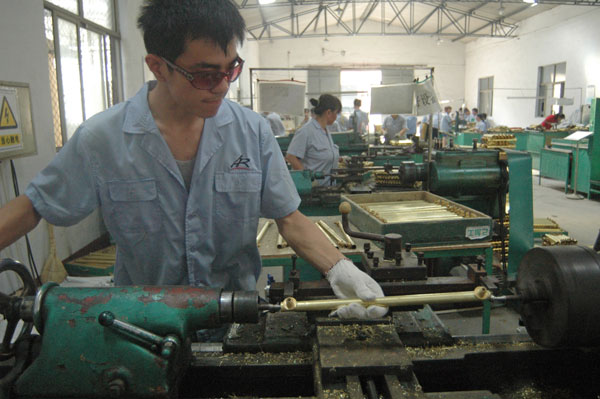Last 'Dambuster' pilot in WWII dies at 96
Updated: 2015-08-04 19:23
(Agencies)
|
|||||||||||
 |
|
Les Munro (left) holds a picture of bomber during a "Dambusters" reunion at Islington, London, in this file photo. [Photo/IC] |
WELLINGTON, New Zealand - A New Zealander who was the last surviving pilot from the specialized World War II "Dambuster" mission targeting German infrastructure died Tuesday. Les Munro was 96.
The team of top pilots secretly trained in 1943 to master flying at high speeds, low altitudes and in the dark. The British team was tasked with flying over Germany and dropping a specially designed bouncing bomb to destroy dams.
More than 50 of the 133 airmen died during the raid, but it was considered a success after two dams were destroyed. That flooded factories and killed more than 1,000 German citizens in the Ruhr valley, while also boosting morale back in Britain.
Munro himself was unable to complete the mission after his Lancaster bomber was hit by enemy fire and was forced to return to base.
The mission inspired a book and a 1955 movie, "The Dam Busters."
"Really sad to hear of Les Munro's death," wrote Prime Minister John Key on Twitter. "New Zealand has lost a remarkable man who led a remarkable life."
Peter Wheeler, the chief executive of the New Zealand Bomber Command Association, a group for aircrew veterans, said Munro was prouder of a mission he completed a year later, on the night before the invasion of Normandy, or D-Day.
Wheeler said in that mission, Munro and other pilots attempted to trick German radar operators by circling and advancing slowly, while also tossing out aluminum strips, in order to appear on radar screens as a major sea invasion, away from where the real invasion would soon happen.
Munro earlier this year offered to auction his war medals to secure funding for the upkeep of the Bomber Command Memorial in London. But Britain's Lord Ashcroft stepped in the day before the auction, donating 75,000 pounds ($117,000) and allowing Munro to donate the medals to a New Zealand museum.
John Leslie "Les" Munro was born in Gisborne, on New Zealand's North Island, in 1919.
Wheeler said that after World War II, Munro began working at a government agency that gave loans to ex-servicemen to help them become farmers. Wheeler said Munro "took his own advice" by becoming a farmer himself.
Related Stories
Overseas Chinese commemorate WWII victory 2015-08-04 16:36
Forced Chinese laborers in WWII unsatisfied but accept Mitsubishi's apology 2015-08-03 21:16
Nanjing honors heroes of 'Hump Airlift' in WWII 2015-08-03 08:33
WWII museum opens in Northeast China 2015-08-02 16:01
Xi underscores research of China's WWII role 2015-07-31 22:08
Today's Top News
Former British PM named in allegations of child sex abuse
Obama issues challenge on climate change
Erdogan pledges to fight back as PKK steps up attacks
AIIB, Silk Road parts of China's strategy to benefit the world
Overseas journalists invited to cover China's V-Day celebrations
Greek market tumbles after five-week shutdown
Malaysia seeks international help in search of MH370
French, Malaysian experts meet for MH370 probe
Hot Topics
Lunar probe , China growth forecasts, Emission rules get tougher, China seen through 'colored lens', International board,
Editor's Picks

|

|

|

|

|
|






